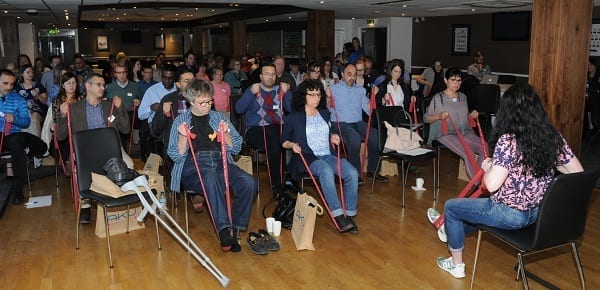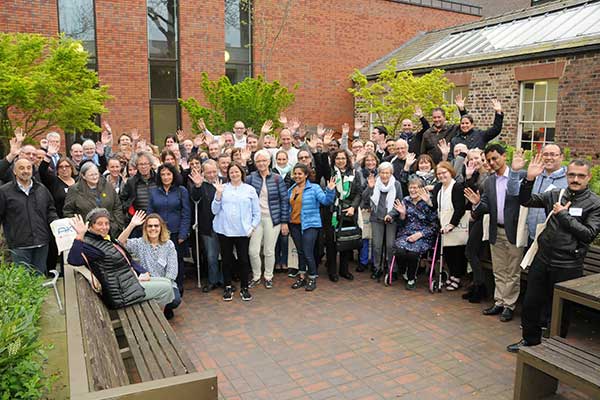The COVID-19 crisis is a worrying and stressful time for everyone across the country. We are told time again to wash our hands regularly, maintain social distancing by keeping two meters apart and not to meet with other people and only leave the house for essentials. However, what about the impact on people’s mental health?
As we mentioned in our previous blog about COVID-19 and AKU there is no specific risk of a higher chance of catching the virus. However, many AKU patients struggle with underlying health conditions and have drastically reduced mobility. This leads to higher anxiety and feeling isolated.
Due to this, we thought it would be handy for our patients to have a list of five things that can help you feel positive keep during this crisis, especially considering the impact on mental health.
1. Stay Connected
One of the most important things to do when you feel isolated in your home is to stay connected with friends and loved ones. Luckily in 2020, there are loads of apps and websites you can use to chat with people you care about. It’s especially important to see people too, so make sure you use video chats. FaceTime, Facebook video chat, WhatsApp video calls, Zoom and Skype are all excellent ways of setting up video chats and are extremely easy to use. You don’t have to be tech-savvy to set them up, but don’t be afraid to ask a friend to show you how. You can even email the AKU Society and we can talk you through it. Lots of people are finding this lockdown stressful; sharing the experience and keeping a version of normality is good for everyone’s mental wellbeing.

2. Look after yourself
How we feel physically has a huge impact on how we feel mentally. Looking after yourself properly is difficult in times like these and it’s easy to fall into unhealthy habits. If you are able, try to go out for a walk with someone you live with every day, although make sure you stay 2m from other people. If you can’t, there are excellent resources for people with limited mobility to help them stay active. Move it or lose it has fantastic webinars on Facebook live that help people take part in chair-based exercises from home.
Looking after yourself also includes getting the right amount of sleep: we find going to bed and getting up at the same time you usually do stops those feelings of apathy that can plague those working from home.

3. Manage what you read and watch.
During crises like this, it’s always tempting to have the news on in the background. However, continually digesting news can increase anxiety levels. Despite 24-hour news channels and online news sites, it’s impossible to keep up to date all of the time. Nothing changes drastically in one day, so try and limit your news intake to an hour a day either in the evening or morning. That way, you are not constantly getting worried by reports on the news throughout the day. Also, be aware that a lot of fake news is circulating that can be scary. Make sure you read this handy government guide on how to spot it. Many people have different opinions about what is going on. Make sure that you only listen to people who know what is actually going on.
4. Find out about your rights
Knowing where you stand regarding work and out-of-work benefits will have a massive impact on your mental health. Worrying about money is the last thing you need while facing a global pandemic. Make sure you head over to this handy guide from the government to find out how it can help you. You can also ask friends or fellow patients what they have done about money. Alternatively, you can email our Patient Support Manager, Hannah Harrison, at Hannah@akusociety.org. Hannah can guide you through the process and reassure you about where you stand.
5. Don’t be too hard on yourself
One of the most important things to remember is that this is a truly extraordinary event. No-one could have predicted the impact this pandemic would have on everyday life. Businesses and households across the world are reeling from strict lockdowns and straining health services. It’s important to remember that no-one is perfect, and everyone is struggling. If you miss exercising or stay up too late, drink too much or struggle to work from home, don’t worry. Everyone is in the same boat and everyone is making it up as they go along. Just try and do your best.
The Citizens Advice Bureau has a helpful guide about where we stand personally with government regulation and help during the lockdown. Make sure you head over for clear and impartial advice.
If you have any advice you would like to share or need help with anything related to this blog, please email ciaran@akusociety.org.
We hope everyone stays safe and listens to government advice during this time. Remember, stay at home, protect the NHS, save lives.

